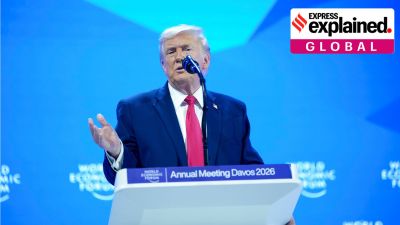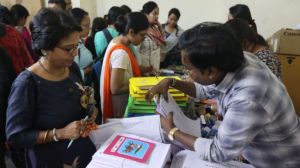Hold J038;K polls on time
The electoral process is an important component of democratic practice, though by no means the only touchstone of its viability. More import...

The electoral process is an important component of democratic practice, though by no means the only touchstone of its viability. More important is the rule of law underlying the principle of democracy and the way that law is practiced. A postponement of elections in J038;K on less than justifiable reasons cannot be accepted as sufficient logic for the CEC to change the duly notified constitutional process. The argument that various sections of the political spectrum, including possibly some separatist groups, would like the postponement of the election schedule already announced by the CEC appears motivated by narrow political considerations. This is also where there is a crucial difference between Gujarat and J038;K which indicates the gap between democratic propriety and the limited political goals of a chief minister intent on pushing for elections. The Election Commission, quite rightly, is not prepared to announce a schedule in accordance with Narendra Modi8217;s agenda.
A postponement of elections in J038;K at this stage, however, would have far reaching consequences which New Delhi would do well to weigh very carefully. Allowing more time for either the interlocutors of the attempt at rapprochement, or to accede to the demands of various groups, would not necessarily be more productive or produce positive results. Pakistan would want nothing better than the excuse to interpret this as proof of what General Musharraf has already described a 8216;farcical8217; process. Islamabad has been known to disrupt the political-democratic processes in the state through the pursuit of cross-border terrorism. Demands for postponement by various political groups would only tend to provide the soft route to undermine the credibility of the elections. It would be reasonable to expect that Pakistan would project the postponement as a sign of weakness, or even of fear on our part to conduct free and fair elections. This would also provide a boost to the jehadi groups who are the only ones to lose from the electoral process.
The majority party in the state has not sought any postponement. All other groups have, or should have, known that elections would be due in September this year as per the constitutional process, and they should have been prepared for it. In fact the idea of postponement seems to have emerged only after Ram Jethmalani8217;s mission to the state. But the detailed schedule for J038;K elections has already been promulgated, and it would be a grave mistake to alter this at this late stage without some overwhelming rationale in support of that change. The only one that could possibly fall in that category is a firm commitment by the All Party Hurriyat Conference to take part in the election process and if it was to request for some time to prepare for the polls. But it is also clear that the Hurriyat will avoid a serious commitment to the elections for fear of losing Islamabad8217;s support.
- 01
- 02
- 03
- 04
- 05































